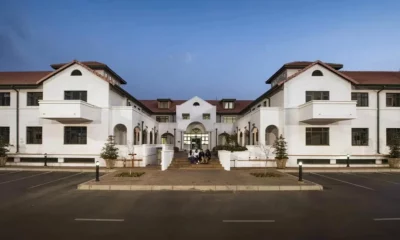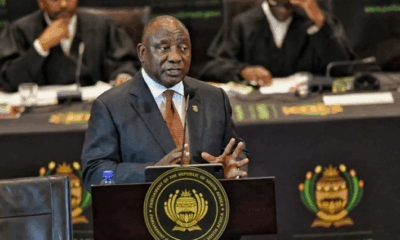News
South Africa’s Silent School Crisis: Why 30,000 Teachers Walked Away in Just Five Years

South Africa’s Silent School Crisis: Why 30,000 Teachers Walked Away in Just Five Years
South Africa has been losing teachers at an unprecedented pace, quietly, steadily, and with real consequences for classrooms across the country. New figures from Minister of Basic Education Siviwe Gwarube show that more than 32,000 educators have exited public schools in the past five years, a number that lands like a punch to the national gut.
To put that into perspective:
That’s the equivalent of emptying every staff room in Gauteng, or nearly the entire workforce of a midsized education district.
And yet, most South Africans only experience this crisis indirectly, through bigger class sizes, fewer subject options, or the frustrated WhatsApp messages from parents complaining about teacher shortages.
A Profession Under Pressure
The reply, submitted to Build One South Africa (BOSA) leader Dr. Mmusi Maimane, reveals a worrying pattern:
Over 30,000 resignations and 1,200 dismissals in just half a decade.
Resignations were driven by everything from retirement and career changes to emigration and mental exhaustion. But the real story the one teachers whisper about in break rooms and vent about on social media is the unbearable pressure they face daily.
The Public Servants Association (PSA) paints a stark picture:
-
Overworked teachers drowning in admin
-
Classes of 40 to 50 learners
-
Violence and safety concerns in schools
-
Low salaries that lag behind global norms
-
A shortage of support staff, counsellors, and resources
Many teachers are simply choosing survival over service.
Inside the Classroom: Overcrowding Becomes the Norm
Walk into a typical township or inner-city primary school, and the numbers speak for themselves. More than half of primary school learners are taught in classes exceeding 40 pupils. In some cases, teachers report more than 50 children crammed into a single room, with barely enough desks to go around.
This isn’t just uncomfortable it’s academically devastating. Internationally, most countries aim for 20–25 learners per class in the foundation phase. South Africa is marching in the opposite direction.
Teachers say they cannot mark properly, cannot teach reading effectively, cannot manage behaviour, and cannot give individual attention.
It’s no longer a crisis waiting to happen.
It is happening. Now.
“We’re Tired”: What Teachers Are Saying
Public reaction to the revelation has been raw.
On X (formerly Twitter), teachers shared personal stories of burnout:
-
“I love my kids, but I’m exhausted. I can’t do another year like this.”
-
“We’re not leaving because we don’t care. We’re leaving because we’re breaking.”
-
“Every term feels like running a marathon with no finish line.”
Parents have also chimed in, frustrated that learners suffer the consequences of a system pushed beyond its limits.
Unemployed Teachers, Yet Critical Shortages?
The irony is painful:
South Africa has over 12,700 qualified teachers sitting at home, listed on the National Recruitment Database, waiting for employment.
The PSA says these educators could fill vacancies immediately if the Department of Basic Education moved faster.
BOSA echoed this, calling for a teacher deployment and absorption plan, arguing that trained educators should not be left idle when classrooms are bursting at the seams.
Gwarube Under Pressure to Deliver a Turnaround Plan
This is Gwarube’s first major national test as minister, and the stakes are high.
Opposition parties want:
-
A teacher retention strategy
-
Better incentives to keep skilled educators
-
Clear plans to address burnout
-
Improved safety and working conditions
-
Measures to align salaries with the realities of the job
BOSA described teachers as “the country’s unsung heroes”, urging Parliament to protect the profession before the system collapses further.
A Bigger Warning: What Happens If We Keep Losing Teachers
Education experts warn that South Africa is heading for:
-
more dropouts,
-
lower literacy rates,
-
declining matric performance,
-
and long-term economic damage.
Put simply:
You cannot run a country if you cannot run its classrooms.
Education is the foundation upon which everything else stands, jobs, innovation, democracy, stability. When teachers walk away, they take the future with them.
Restoring the Dignity of Teaching
The PSA says it plainly:
“Education is one of the cornerstones of national development.”
And they are right.
South Africa’s teachers do not leave because they want to. They leave because the system leaves them behind overwhelmed, undervalued, and unprotected.
If government does not act urgently, the next five years may see an exodus even more devastating than the last. And this time, the country may not recover so easily.
{Source: IOL}
Follow Joburg ETC on Facebook, Twitter , TikTok and Instagram
For more News in Johannesburg, visit joburgetc.com



























